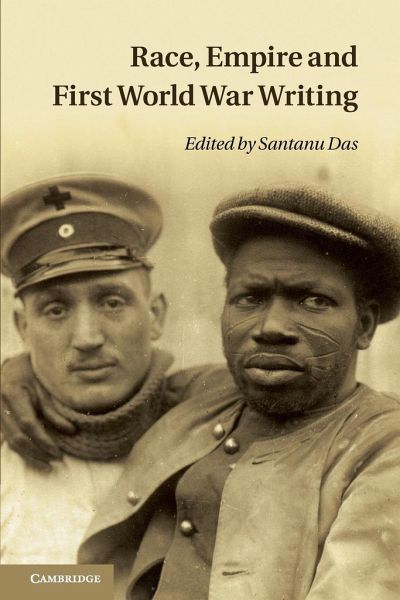
Race, Empire and First World War Writing
Versandkostenfrei!
Versandfertig in 1-2 Wochen
49,99 €
inkl. MwSt.

PAYBACK Punkte
25 °P sammeln!
This volume brings together an international cast of scholars from a variety of fields to examine the racial and colonial aspects of the First World War, and show how issues of race and empire shaped its literature and culture. The global nature of the First World War is fast becoming the focus of intense enquiry. This book analyses European discourses about colonial participation and recovers the war experience of different racial, ethnic and national groups, including the Chinese, Vietnamese, Indians, Maori, West Africans and Jamaicans. It also investigates testimonial and literary writings,...
This volume brings together an international cast of scholars from a variety of fields to examine the racial and colonial aspects of the First World War, and show how issues of race and empire shaped its literature and culture. The global nature of the First World War is fast becoming the focus of intense enquiry. This book analyses European discourses about colonial participation and recovers the war experience of different racial, ethnic and national groups, including the Chinese, Vietnamese, Indians, Maori, West Africans and Jamaicans. It also investigates testimonial and literary writings, from war diaries and nursing memoirs to Irish, New Zealand and African American literature, and analyses processes of memory and commemoration in the former colonies and dominions. Drawing upon archival, literary and visual material, the book provides a compelling account of the conflict's reverberations in Europe and its empires and reclaims the multiracial dimensions of war memory.














